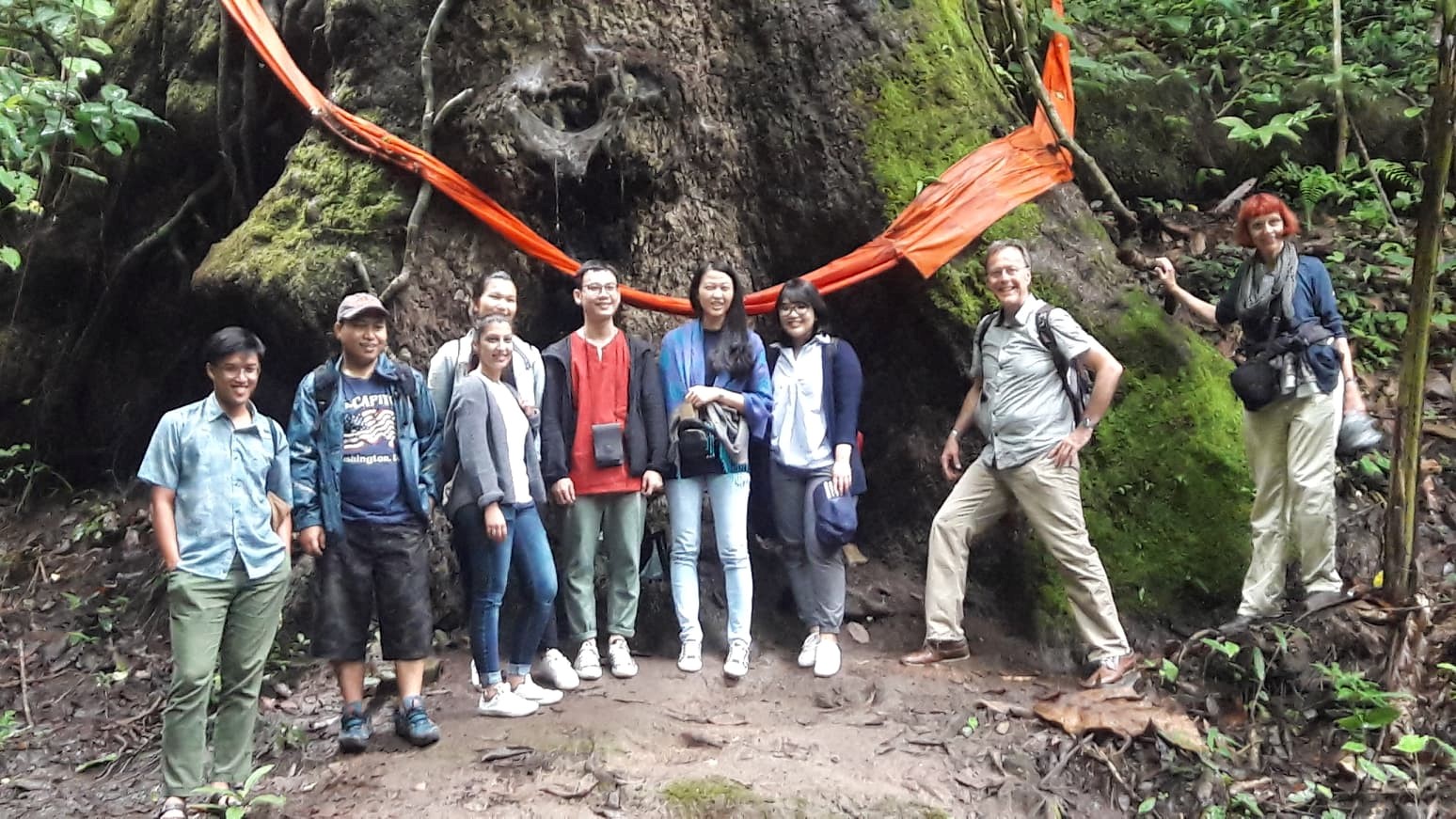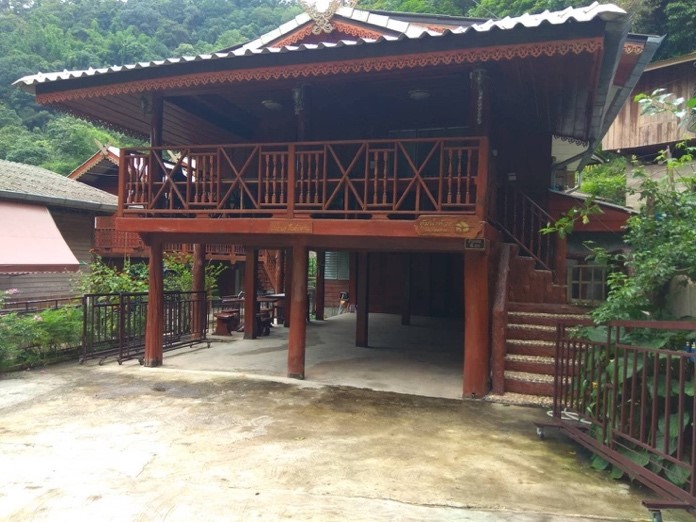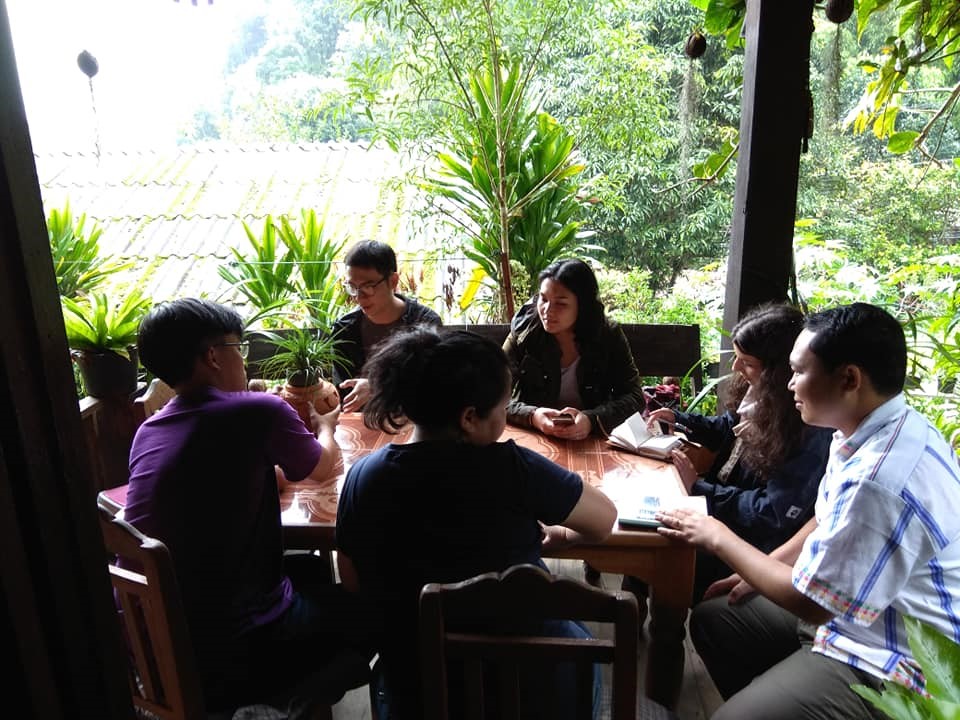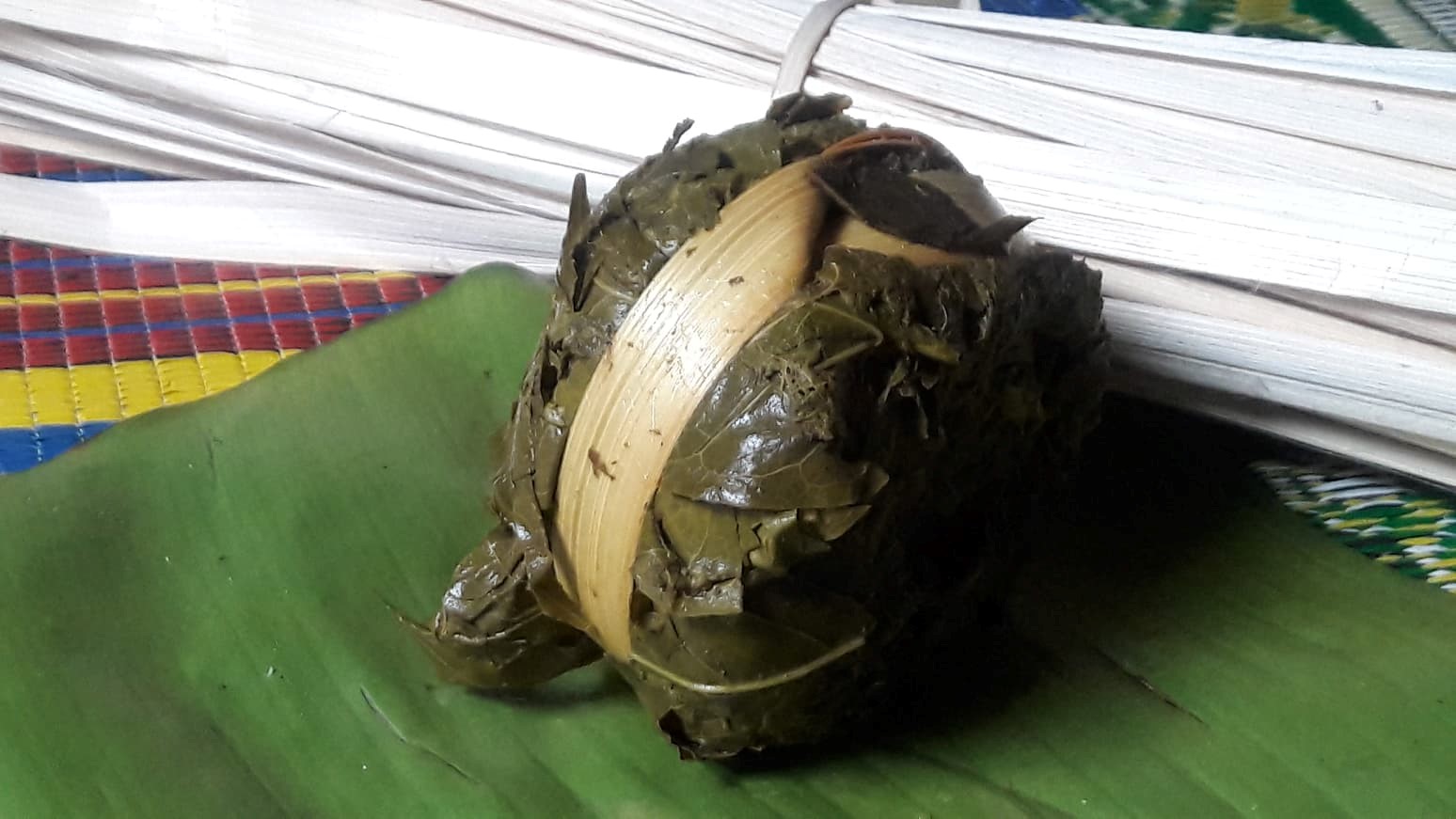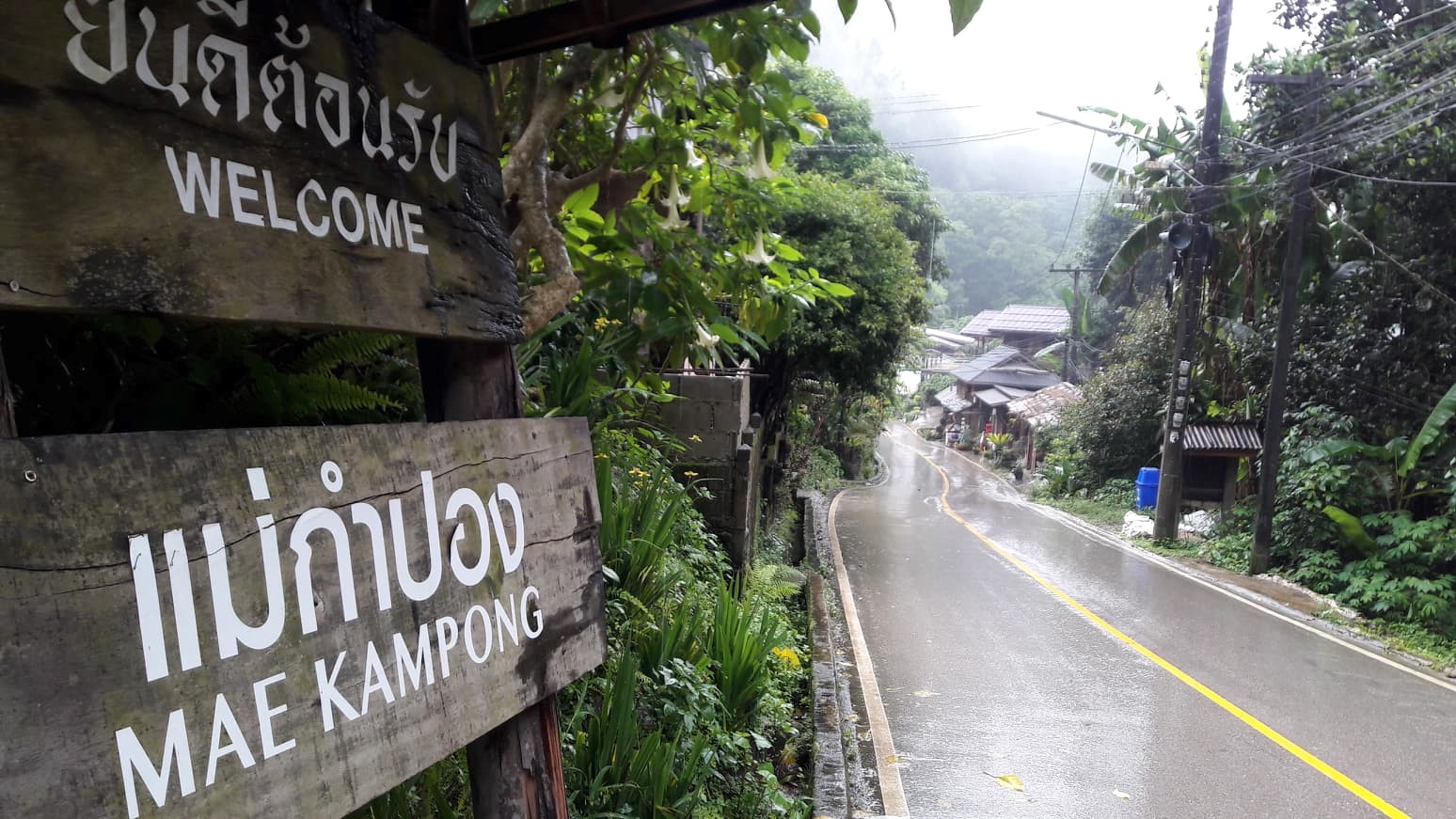By Salai Vanni Bawi
Introduction
I was selected to join KNOTS program from July 17 to July 31,2018 in Chiang Mai University, Thailand. It was very excellent program for the students those who are keen to learn and apply new knowledge regarding trans-disciplinary research methodology in field work. The program has been compromised both a dynamic learning environments such as panel discussion, group discussions and presentations, experience exchange between European students and ASEAN students, and field study exercise related to individual scope of the students’ interest. To me, it was very productive activities and well-prepared for learning and doing in both academic learning and field study as well. I have much benefit from those experiences to review my limited knowledge, concepts and ideology by trans-disciplinary experience. In this workshop, social science and its aspects to review and analyze current hot issues in global challenges such as inequality, migration, investment, climate changes and ecotourism development. In this connectivity, Social Science theories have explained the transformation of what the community can be benefit from trans-disciplinary study. It also reflects the sustainable approach to define a better representation of community and it works by using trans-disciplinary approach.
One of good lessons learned from the panel discussion, the development patterns and the structures of Greater Mekong Sub-region. Greater Mekong Sub-region, so-called golden triangle opium region border sharing among Laos, Thailand and Myanmar. Due to economic and political crisis of Mekong region, and Thailand becomes a major key player of economic zone for migrates both legal or non-legal from her neighboring countries such as Myanmar, Laos, Vietnam and Cambodia. Furthermore, in the development of Thailand’s economic structures, labor and workforce contribution of migrants should not be forgotten. Nevertheless, Thailand is also struggling to deal migration issue, internal labor conflict, inequality and climate changes pressures. In fact, Thailand becomes one of the most key areas to learn migration, internal labor conflict, inequality and the impact of the climate changes in Mekong sub-region. Meanwhile, I belief that the chosen to Chiang Mai University is the best spot to learn diversity of cultures, ethnicities and community’s issues in one stop learning point. In the group discussion, we have learned that social inclusion was key actor to achieve sustainable development in Mekong sub-region. In addition, the policy makers and civil societies always need to check and review the investment for development program by checking distribution justice, procedure justice, justice and recognition, and the benefit and fairness for local community.
Learning TDR from lectures in the Classroom
I have learned new research methodology, so-called Trans-Disciplinary Research (TDR) method in my life. It was very new concept in my research experience and eager to understand that what is the main idea of trans-disciplinary research methodology. Tran-disciplinary is a kind of research methodology which is focusing on research which is working with people and the purpose for further sustainable development in society. The method is using for encountering social problems to get positive result by using the contribution of different people from various disciplinary background such as academic disciplinary, multi-disciplinary and interdisciplinary. It means that every body in the fieldwork, including researcher is also one of key actors in TDR methodology because they also have specific academic background, and able to provide his or her perspective in problem solving of community. Meanwhile, TDR elaborates non-academic learning which is also very important instead of interviewing under disciplinary research methodology that could be pros vs cons for the human society. In this circumstance, TDR is trying to integrate the knowledge of local community, economy and political economy into the development. In addition, there are many different types of research methodology such as applied research, team research, collaborative research, action research, participatory research and citizen research. Among of these methodologies, it has their own advantage and disadvantage. Among of them, why TDR is important and how this works in development, due to, it can cooperate knowledge and skills of non-educated people, use local practice and value local input in research writing. Analyzing applied research, the methodology is trying to lead into problem solving type and focusing adaptive theory in this work. The slogan of this method is “Problem + Solving”. In this point, trans-disciplinary is very modernized methodology aspect on knowledge sharing and transfer knowledge to local community nowadays.
Learning TDR in the Field Work
KNOTS was not only focused in the lectures, but also created an open opportunity for me to study in field exercise regarding TDR. In this care, I selected transition from Agroforestry to Ecotourism Study in Mae Kampong Eco-village, due to I want to continue my further study on political ecology and environmental sustainability. Mae Kampong is located in Huay Kaew sub-district, Mae On district, Chiang Mai province. It lies at an average height of 1,300 meters above the sea level. Presently, there are 140 households and 380 people in total. Ethnic background of villagers in Mae Kampong is Khon Muang or lowlanders of Northern Thai. Regarding historical development of the village, Mae Kamong was set up by villagers who search for land to cultivate Mieng, a kind of tea plant, about 100 years ago. Previously, villagers in Mae Kampong are mainly worked on Mieng plantation and products. “Mieng” is fermented young leaves of tea plant. However, after Mieng is no longer popular among today’s younger generation, so the village has been gradually changed to be tourism site since 2000. Community-based tourism (CBT) is the form taken by villagers, focusing on eco-tourism. Tourism businesses include homestay, guesthouse, tea-leaves pillow making, trekking, massage, etc. Due to limited land and natural resources, villagers set up rules for not allowing outsiders to purchase land and operate tourism businesses in the village. However, some outside investors have settled and run businesses in this village. Interesting issues in this village include community-based tourism, Mieng and tea industry, coffee industry, self-governance, Hydro-power electric generating, natural resources management, influences of outsiders’ investment on tourism businesses, and village funds.
In this field work, I have a chance to learn both cultural conservation process of the village and ecotourism management of the village as well. In this context, we always have reviewed TDR in each visits to village headman, individual those who are the villagers, owners of home-stay program and guesthouse business. Regarding cultural conservation, I have learned that multi-disciplinary involved in the development of cultural museum. For instance, I have met with one of the Professor from Chiang Mai university who is helping to establish village museum under National Researcher Council Thailand. The museum is established by the cooperation between CMU and Villagers in order to promote preservation the ways of people living in Mea Kampong, the display of local livelihood patterns, ecotourism and environmental sustainability. Moreover, the village becomes one of successful ecotourism destinations in Thailand and aiming to extend their knowledge and skills to other villages in Thailand as well. For instance, many villages from other province also come and learn from their experience – ecotourism, community based hospitality and home-stay program in this museum as well. In this way, the village have organized their intended mission through involving multi-disciplinary in one purpose to achieve. By aspect of TDR, I have learned that many disciplines from academic, research and local already involved in cultural preservation. Indeed, I also came from one discipline to understand cultural preservation and can provide some suggestions based on my experiences in Myanmar. In this way, I am a quite confident to apply TDR to conduct my future researches where every one can involve based on their different experience to carry a better outcome of the research.
In addition, our team have met with the former village head person, who is a pioneer of ecotourism development in the village. He plays very big role to design, develop and manage in home-stay program. Furthermore, I have visited and interviewed to the owners of home-stay program and guest house. Regarding home-stay program, the system is still managing by former village headman. Before they started home-stay, the villagers are very hard work in agro-farm. However, formal village headman inspired home-stay program and organized the structure to organize home stay procedure. For instance, the home-stay program also has a certain regulation to become a home-stay owner for the guest. The following regulation need to be followed by the owner - the toilet should be in western style, blankets, pillows should be enough for maximum seven persons and at least three dishes of Thai foods could be provided to the guest. The home-stay charges 520 Baht for one tourist that included accommodation and three meals – breakfast, lunch and dinner per day. Amount from 520, 180 Baht is contributing back to village fund. In this way, the villagers are equally benefit from home-stay program. In the system, If the guest prefers to stay in home-stay, he or she has to inform to former village headman. And then, the former headman will allocate the guests to different home-stay. It means that routine system is practice in home stay program under management of former village headman.
Besides home-stay program in the village, we also studied about guest house business in the village. The guest house is individual owned by the villagers and managed independently in the community. It charges 500 Baht per person including breakfast and dinner only. Unlike the home-stay system, the guest house owner has to contribute back only 50 Baht per person to village fund. Regarding official recognition of tourism department, they have to follow the regulations of district Thailand tourism. Moreover, the advertisement is mainly depended on their network through social media, person to person and guest referral among guest house owners.
Reflection from our research studies, we have noticed that the village plays a role model for other villages in different district regarding on ecotourism, home stay and tourism hospitality. Former village headman plays a crucial role to lead and provide his lecture to researchers, tourists, villagers from other villages. Analyzing this short research, we also seen some inequality in leadership and the contribution to village fund between home-stay and guest house. For instance, home-stay contribute 180 Bahts for village fund, but the guest house owner contributed only 50 Bahts. In this case, we can see that inequality in contribution and seem discrimination for home-stay because they have to serve one additional meal and 130 Baht more than guest house. In this case, we can learn income inequality in two different ownerships – homestay and guesthouse. In addition, the former village headman plays major key roles than current village headman regarding to give lecture to visitors and home-stay program management. It could be a challenge to manage and leadership
Conclusion
Related to TDR, I have a chance to reflect my learning regarding TDR in these two areas such as culture museum and ecotourism development in the village. I have found that many disciplines with different people involved in the process of ecotourism development in the village. In addition, field participants have different background and different interests in the constructive study, some are from anthropology, southeast Asia study, political science and ethnic study from Thailand and European universities. I can felt that all participant equally contributed to analyze the condition and the learning points from different aspect in this study and exchange idea and knowledge from different disciplines. This is what I could absorb a new research methodology, TDR for future my career and study with high motivation. I am very much appreciated to KNOTS program, Chula KNOTS program, individual organizers those who highly contributed in this summer school and gave me a chance to explore a new research methodology in my academic career. I strongly believed and confident that I will able to apply in my new career in academic and research work to create a better condition for my field of works in Myanmar as well.

